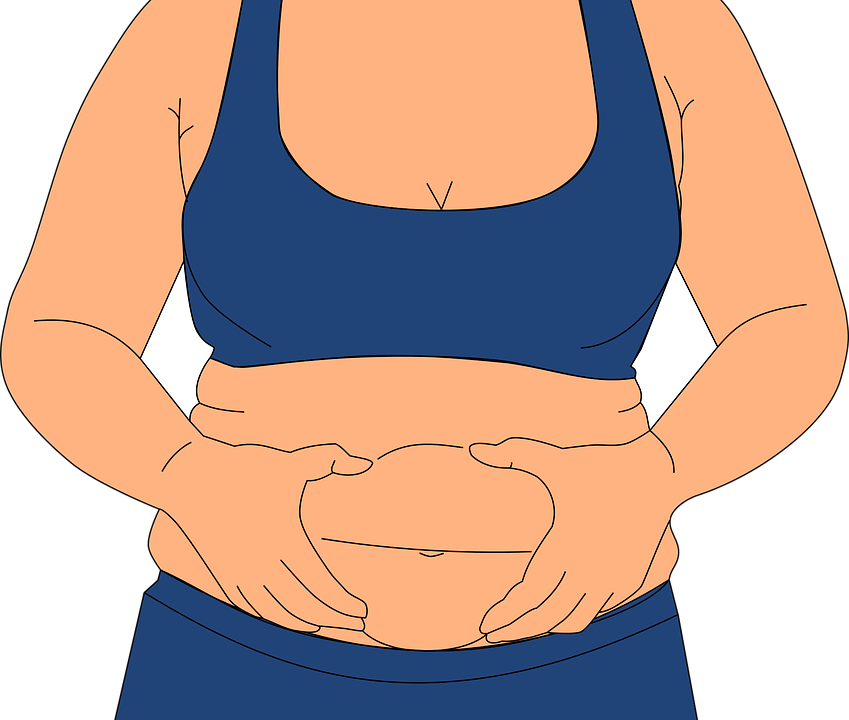
Iodine is an essential mineral for health. Iodine, a water-soluble mineral, is found in some foods and iodized table salt. It can also be taken as a dietary supplement. So, what are the symptoms of iodine deficiency, and is it dangerous?
Iodine is essential for growth and brain development and is central to healthy thyroid function. The thyroid gland uses iodine to make thyroid hormones.
Hypothyroidism occurs when a person’s thyroid cannot produce enough thyroid hormone. Iodine deficiency causes hypothyroidism by limiting the thyroid’s ability to produce hormones.
Symptoms of Iodine Deficiency
According to a study conducted in 2017, approximately one-third of people worldwide are iodine deficient. Here are 11 signs that you may have an iodine deficiency.
1. Weight Gain

One of the most striking symptoms of iodine deficiency is unexpected weight gain.
When a person has a healthy metabolism, they burn calories for their energy needs. Hypothyroidism, or thyroid hormone deficiency, slows metabolism. When metabolism slows, calories are more likely to be stored as fat, which can lead to weight gain.
It is important to remember that weight gain is not always a symptom of iodine deficiency.
2. Feeling Powerless
Symptoms of iodine deficiency include feeling powerless. Heavy objects that were easily lifted in the past can strain the person. Hypothyroidism slows the metabolic rate. Thus, fewer calories are burned for energy. Less energy means the muscles are not working efficiently. This makes one feel powerless.
3. Feeling Tired

The decrease in metabolic rate also causes the person to feel tired. Therefore, feeling tired is another symptom of iodine deficiency.
As with weight gain, feeling tired doesn’t always mean you have an iodine deficiency. If a person is not getting enough rest, it is natural to feel tired. However, unexplained fatigue can be a sign of iodine deficiency.
4. Hair Loss
Hair loss is another sign of iodine deficiency. Thyroid hormones support the regeneration of hair follicles. If a person has hypothyroidism, a shortage of thyroid hormones means that the follicles stop regenerating.
5. Skin Dryness
Having dry and flaky skin can be a sign of hypothyroidism, as it can be a result of iodine deficiency.
Thyroid hormones help cells regenerate. The deficiency of these hormones can cause dead skin cells to build up and sometimes lead to dry and flaky skin.
6. to be cold
Iodine deficiency causes a deficiency of thyroid hormones. Having less thyroid hormone causes a person’s metabolic rate to slow down. As the metabolism slows, the person produces less energy. Energy warms the body. Low energy causes the person to feel cold.

7. Slowing Heart Rate
Iodine deficiency can cause a person’s heart to beat more slowly. When the heart rate slows down, dizziness or discomfort may be felt. It can also cause the skin to appear pale.
8. Learning or Memory Problems
Iodine deficiency can cause a deficiency of these hormones, which can cause memory and learning problems.
A 2014 study found that the hippocampus, the part of the brain that affects memory, is smaller in people with low thyroid hormones.
9. Pregnancy Complications
It can be difficult for a pregnant woman to get enough iodine. In addition to herself, a pregnant woman needs additional iodine for the baby growing inside her.
Thyroid hormones are essential for the healthy development of the baby before birth. The absence of these can prevent the baby’s brain from developing properly. It can also suppress its growth.
10. Heavy and Irregular Periods
Low thyroid hormone levels can affect the levels of hormones that regulate menstrual periods. The following may be symptoms of iodine deficiency:
- Menstrual periods are heavier than normal
- Menstrual periods are longer or shorter than usual
11. Neck Swelling

Iodine deficiency causes enlargement of the thyroid glands in the neck, thus causing swelling in the neck. When the thyroid does not have enough iodine, it tries to use the iodine in the blood. This causes the thyroid to enlarge and the neck to appear swollen.
[hurrytimer id=”1246″]
Thank you for continuing reading please don’t forget to share this article with your friends






